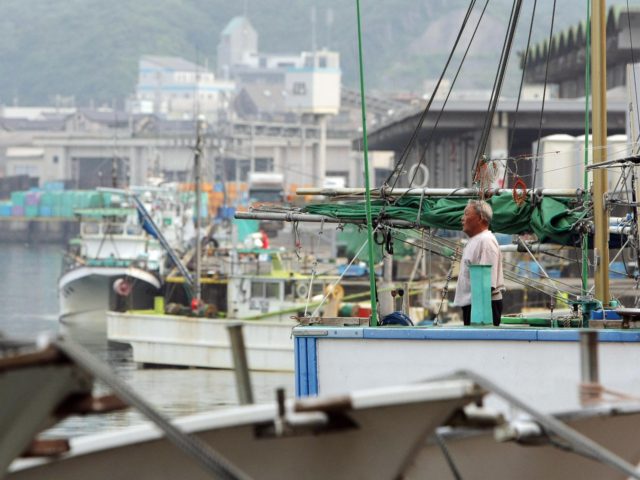Japan’s Fisheries Agency has advised Japanese fishing boats to avoid certain areas within Japan’s own exclusive economic zone (EEZ) and operate elsewhere after thousands of Chinese fishing boats ignored Tokyo’s previous warnings in recent weeks to exit the country’s waters.
“The request, directed at Japanese fisheries cooperatives, caused considerable outrage with a fisherman in Ishikawa Prefecture, facing the Sea of Japan,” the Asahi Shimbun reported on Wednesday. According to the newspaper, upon learning of the recommendation, the fisherman griped, “When a burglar has entered one’s backyard, would anyone say do not get near the thief?”
“[Japan’s] Fisheries Agency officials declined to go into details, saying only that its request was aimed at securing the safety of Japanese fishing boats.”
The fisheries agency said that by the end of September, its patrol vessels had ordered 2,589 Chinese vessels to leave Japanese waters off the country’s northwest coast near the Yamatotai fishing grounds. This marks “a 3.6-fold increase over the same period in 2019,” according to the report.
The Japan Coast Guard, which operates separately from the fisheries agency, said it had issued “a record 102 orders … to Chinese fishing boats as of October 16,” a significant increase over the 12 orders issued in 2019.
The Yamatotai fishing grounds are located about 217 miles off of Japan’s Noto Peninsula. Yamatotai is a favorite fishing spot among Japanese crews in the autumn when Surume Ika or flying squid and crabs native to the waters are abundant.
Kishi Hiroshi, president of Japan’s national federation of fisheries cooperatives (JF Zengyoren) visited several ministerial offices in Tokyo on October 16, including the prime minister’s office, to request that fishermen be allowed to return to the Yamatotai zone.
“The Japanese government should implement a firm response so that Japanese boats can resume fishing,” Kishi said at the time.
According to the South China Morning Post (SCMP), analysts observing China’s recent encroachment on Japan’s EEZ say it could be caused by China overfishing in its own “coastal waters close to the [Chinese] fishermen’s home ports … meaning the crews are having to venture farther afield for a catch. An alternative suggestion is that China is testing Japan’s resolve over its territorial integrity and the responses of its coastguard and, potentially, the military.”
Judging from JF Zengyoren’s adverse reaction to Tokyo’s recent suggestion that fishermen near Yamatotai merely avoid the Chinese fleets, Japanese fishermen seem to support a stronger government response to the illegal activity.
“There has been no word on whether more coastguard vessels will be deployed to the area to protect Japanese vessels and to dissuade foreign boats from entering,” the SCMP noted on Wednesday.

COMMENTS
Please let us know if you're having issues with commenting.